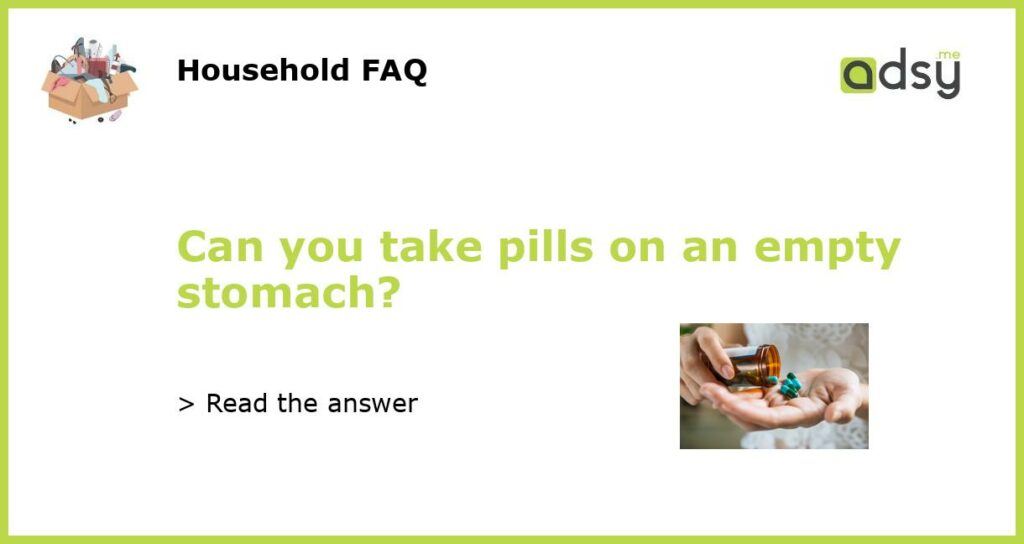Can You Take Pills on an Empty Stomach?
What happens when you take pills on an empty stomach?
Many people wonder if it is safe to take pills on an empty stomach. While there are certain medications that need to be taken with food, such as antibiotics, others can be taken with or without food. When you take pills on an empty stomach, they may be absorbed more quickly into your bloodstream, leading to a more intense and potentially harmful effect. It is always best to follow the instructions provided by your healthcare provider or read the label on the medication carefully before deciding whether or not to take it on an empty stomach.
Benefits of taking pills with food
In some cases, taking pills with food can have several benefits. Firstly, food can help to coat your stomach lining, protecting it from potential irritation caused by certain medications. Additionally, some medications are better absorbed when taken with food, which can enhance their effectiveness. The presence of food can also help to slow down the absorption of some medications, preventing sudden spikes in blood levels, which may lead to side effects. Ultimately, taking pills with food can optimize their therapeutic potential while minimizing potential side effects.
Medications that should be taken on an empty stomach
However, there are certain medications that should be taken on an empty stomach. Some antibiotics, such as amoxicillin and azithromycin, are more effective when taken before meals. This is because food can interfere with their absorption, reducing their effectiveness. Iron supplements are also best taken on an empty stomach, as they are better absorbed when your stomach pH is lower. Certain drugs used to treat osteoporosis, such as alendronate, should be taken on an empty stomach because food can interfere with their absorption. To ensure the proper absorption of any medication, it is important to carefully read the instructions provided and consult with your healthcare provider when in doubt.
Potential risks of taking pills on an empty stomach
Taking certain medications on an empty stomach can increase the risk of side effects. For example, nonsteroidal anti-inflammatory drugs (NSAIDs) such as ibuprofen and aspirin can irritate the stomach lining, leading to ulcers or gastrointestinal bleeding, especially when taken without food. Other medications, such as certain painkillers or antidepressants, may cause nausea or upset stomach when taken on an empty stomach. If you experience any discomfort or side effects after taking medications on an empty stomach, it is important to discuss this with your healthcare provider to determine the best course of action.
General guidelines for taking pills with or without food
If you are unsure whether you should take your medication on an empty stomach or not, there are some general guidelines you can follow. Firstly, always read the instructions provided with the medication or consult with your healthcare provider. They will be able to provide you with specific recommendations based on your individual needs and medical history. In general, if a medication should be taken with food, it is recommended to take it shortly before or after a meal. If a medication should be taken on an empty stomach, it is typically recommended to take it at least one hour before or two hours after a meal. Following these guidelines can help ensure the proper absorption and effectiveness of your medication while minimizing potential side effects.






